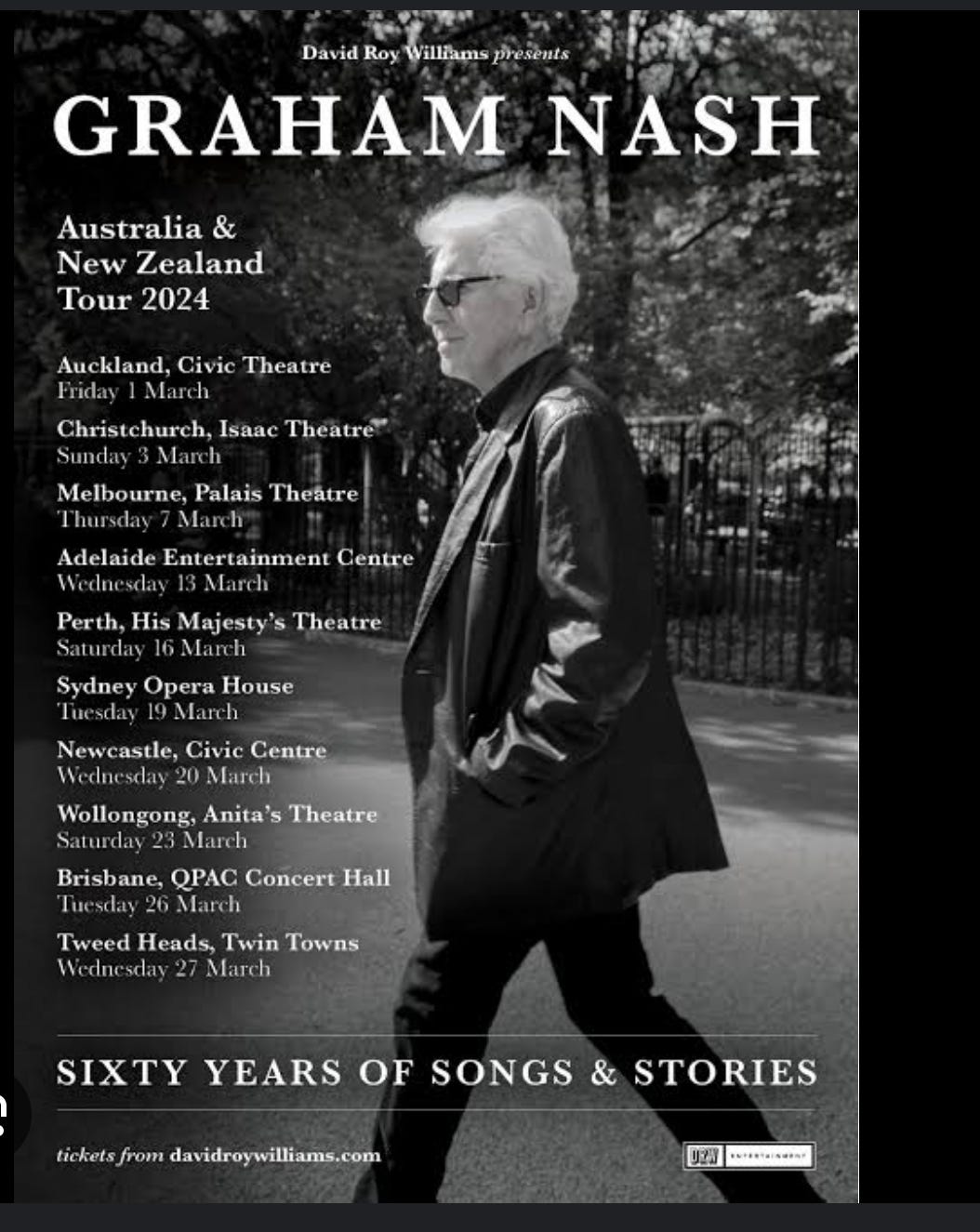Gig Review: Nashing of Teeth - Graham Nash Sings The Songs And Tells The Stories Around Their Creation
Gig reviews are making a comeback. According to me! I went to Auckland to see Graham Nash. I’m sure glad I did. Another legend for the list…
Graham Nash
The Civic, Auckland
Friday, March 1
Graham Nash has the songs. And the stories behind them. And that’s what he brings. That’s how it’s billed — although, to be honest, I was expecting a few more deeper-dives down into the life and career, story-wise. Instead, it’s really a survey, stopping off along the way for the obvious hits and a few surpri…
Keep reading with a 7-day free trial
Subscribe to Sounds Good! to keep reading this post and get 7 days of free access to the full post archives.


